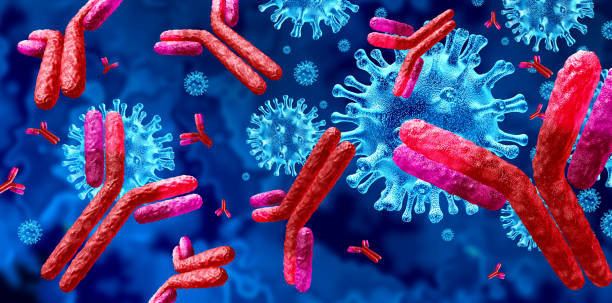Workouts and Diet Tips For Boosting Your Immune System Naturally.

Are you tired of constantly falling ill and feeling run down? Are you interested in Boosting Your Immune System naturally? Here you are! In this comprehensive guide, we will explore how simple changes to your diet and exercise routine can have a huge impact on boosting your immune system.
Maintaining a strong immune system is crucial for staying healthy and warding off diseases. And the good news is, you don’t need any fancy or expensive remedies to achieve this.
So, what are these magical changes that can help in boosting your immune system naturally? It all starts with what you put on your plate. A balanced diet rich in essential nutrients provides the foundation for a robust immune system. We will dive into the key nutrients that play a vital role in strengthening your immunity and the best sources to find them.
But diet alone won’t do the trick. Regular physical activity is equally important in supporting your immune system. Engaging in moderate exercise not only boosts circulation but also promotes the production of antibodies and immune cells, which are essential for fighting off infections.
Table of Contents
What is the “Immune System”?

When it comes to safeguarding our bodies against harmful invaders, the immune system takes centre stage. It acts as a vigilant defence mechanism, tirelessly working to keep us healthy. But how does it function? Let’s delve into the essential roles it plays.
First and foremost, the immune system identifies and recognizes foreign substances, known as pathogens, that can potentially cause harm. These can range from bacteria and viruses to fungi and parasites. Once detected, the immune system goes into action, launching a series of targeted responses to neutralize and eliminate these invaders.
Through a complex network of cells, tissues, and organs, the immune system orchestrates its defence. White blood cells, or leukocytes, are the foot soldiers of this army. They act as the primary defenders, patrolling the body and seeking out any signs of trouble. Additionally, antibodies are produced to specifically target and neutralize the identified pathogens.
How the immune system defends against pathogens

Now that we understand the immune system’s general functions, let’s explore how it tackles different types of pathogens. Each pathogen presents its unique challenges, and the immune system adapts its responses accordingly.
When confronted with a bacterial infection, the immune system initiates an inflammatory response. This response serves to contain and destroy the bacteria. White blood cells rush to the site of infection, releasing chemicals that attract more immune cells. Together, they work to engulf and eliminate the bacteria, preventing further spread and damage.
In the case of viral infections, the immune system takes a different approach. It recognizes infected cells and releases chemicals to inhibit the virus’s replication. Specialized cells called cytotoxic T cells directly attack and destroy the infected cells, halting the viral spread.
The immune system’s defence against fungi and parasites involves a combination of strategies. It deploys immune cells that release toxic substances to destroy the invaders. In some cases, specialized cells called eosinophils produce antibodies that coat and neutralize the parasites, rendering them harmless.
How does my immune system Impact my health?
When the immune system is not functioning optimally, it can have serious implications for our overall health and well-being. A compromised immune system leaves us vulnerable to infections and diseases, making it more difficult to fight off even minor illnesses.
Conditions such as autoimmune disorders, where the immune system mistakenly attacks the body’s cells, can arise. Allergies, too, result from an overactive immune response to harmless substances. Moreover, individuals with weakened immune systems may experience frequent infections that take longer to recover from.
Understanding the functions of the immune system and how it defends against pathogens allows us to appreciate the importance of maintaining its strength. By adopting a healthy lifestyle and making conscious choices regarding our diet and exercise, we can actively support and enhance our immune system’s abilities. In the following sections, we will explore the specific dietary and exercise strategies to boost our immunity and promote optimal health.
The Link Between Diet and Immune System Health

What are the Key Nutrients for Boosting Your Immune System Naturally?
To ensure our immune system operates at its best, it relies on a range of vital nutrients. Let’s explore some of the key players that support immune function:
1. Vitamin C: This powerhouse nutrient is well-known for boosting your immune system naturally. It aids in the production of white blood cells and antibodies, enhancing the immune system’s ability to fend off infections. Citrus fruits, such as oranges and grapefruits, along with strawberries and kiwis, are excellent sources of vitamin C.
2. Vitamin D: Often referred to as the “sunshine vitamin,” vitamin D plays a crucial role in immune regulation. It helps activate immune cells and assists in their communication, promoting an efficient immune response. Sunshine is a primary source of vitamin D, but it can also be found in fatty fish like salmon and mackerel, as well as fortified dairy products.
3. Zinc: This essential mineral is involved in numerous immune system functions. It supports the development and activation of immune cells, playing a crucial role in maintaining a robust immune response. Foods rich in zinc include lean meats, shellfish, nuts, and seeds.
4. Selenium: As a powerful antioxidant, selenium aids in protecting cells from damage and plays a critical role in boosting your immune system naturally. Brazil nuts, seafood, whole grains, and eggs are all excellent sources of this important nutrient.
What Foods Help in Boosting Your Immune System Naturally?
Now that we know which nutrients are essential for immune function, let’s explore the foods that provide a wealth of these immune-boosting properties:
1. Citrus Fruits and Berries: Bursting with vitamin C, citrus fruits like oranges, lemons, and grapefruits are excellent choices for strengthening your immune system. Berries, such as strawberries, blueberries, and raspberries, are also packed with antioxidants and immune-supporting nutrients.
2. Leafy Greens and Cruciferous Vegetables: Spinach, kale, broccoli, and Brussels sprouts are not only rich in vitamins A and C but also contain other immune-supporting compounds. These greens provide a nutritional punch to fortify your immune defences.
3. Nuts, Seeds, and Legumes: Almonds, sunflower seeds, and peanuts are great sources of vitamin E, an antioxidant that supports immune function. Legumes like lentils, chickpeas, and beans provide a healthy dose of zinc, protein, and fibre, all of which contribute to a resilient immune system.
4. Lean Proteins and Fatty Fish: Foods like chicken, turkey, and lean cuts of beef supply the body with high-quality protein. Protein is crucial for the production of antibodies and plays a significant role in boosting your immune system naturally. Fatty fish such as salmon, tuna, and sardines are rich in omega-3 fatty acids, which possess anti-inflammatory properties that support immune health.
5. Probiotics and Fermented Foods: Probiotics are beneficial bacteria that help maintain a healthy gut, which is closely linked to boosting your immune system naturally. Yoghurt, kefir, sauerkraut, and kimchi are examples of fermented foods that introduce these beneficial bacteria into your system.
How important is Exercise in Boosting Your Immune System Naturally?
Regular exercise not only benefits your overall well-being but also plays a crucial role in strengthening your immune system.
These are how exercise positively influences immune system function:
1. Enhanced Circulation: Physical activity increases blood flow, promoting the efficient transportation of immune cells throughout your body. This allows these cells to detect and respond to pathogens more effectively.
2. Increased Production of Immune Cells: Exercise stimulates the production of white blood cells, including neutrophils and natural killer cells, which are essential for fighting off infections. These cells help bolster your immune system’s frontline defences.
3. Reduced Inflammation: Chronic inflammation can suppress immune function. Exercise helps regulate inflammation by promoting the production of anti-inflammatory substances, creating an environment conducive to a robust immune response.
Types and Duration of Exercises for boosting your immune system Naturally
To reap the immune-boosting benefits of exercise, it’s important to engage in regular physical activity. Here are some recommendations for the types and duration of exercise:
1. Aerobic Exercise:
Activities such as brisk walking, jogging, cycling, or swimming are great choices for aerobic exercise.
Aim for at least 150 minutes of moderate-intensity aerobic exercise per week or 75 minutes of vigorous-intensity exercise. Break it down into manageable sessions, such as 30 minutes, five days a week.
2. Strength Training:
Incorporating strength training exercises into your routine is beneficial for immune health. Include exercises that target major muscle groups, using weights or resistance bands, at least two days a week.
3. Flexibility and Balance Exercises:
Don’t forget about flexibility and balance! Activities like yoga, Pilates, or tai chi can improve flexibility, balance, and overall body awareness, contributing to your overall well-being.
Does exercise help in Stress and Immune Response?
Exercise also plays a significant role in managing stress, which can have a profound impact on immune function. Chronic stress weakens the immune system, making you more susceptible to infections.
However, regular exercise acts as a natural stress reliever. It helps reduce the production of stress hormones while releasing endorphins, which promote feelings of well-being and relaxation. Managing stress levels through exercise helps bolster your immune response.
How to easily fit in Exercise into Your Routine
Incorporating exercise into your daily life doesn’t have to be complicated. Here are some practical tips to help you make it a regular part of your routine:
1. Find Activities You Enjoy
Choose exercises that you find enjoyable and that fit your preferences. It could be dancing, hiking, playing a sport, or even gardening. When you enjoy what you’re doing, it’s easier to stick with it.
2. Start Slow and Gradually Increase the Intensity
If you’re new to exercise or haven’t been active for a while, start slowly and gradually increase the intensity and duration of your workouts. This approach reduces the risk of injury and allows your body to adapt to the changes.
3. Make It a Habit
Schedule exercise into your daily routine, just like you would any other important appointment. Consistency is key when it comes to reaping the benefits of exercise.
4. Mix It Up:
Vary your workouts to keep things interesting and target different muscle groups. This not only prevents boredom but also ensures a well-rounded fitness routine.
5. Listen to Your Body:
Pay attention to how your body feels during and after exercise. If you experience pain or discomfort, modify your activities or seek guidance from a healthcare professional.
Good Sleep and Its Impact on Boosting Your Immune System Naturally
Getting enough sleep is vital for maintaining a strong immune system. During sleep, your body repairs and rejuvenates itself, which includes boosting your immune system naturally.
Lack of sleep, on the other hand, can weaken immune function and make you more susceptible to infections.
Therefore, it’s crucial to prioritize quality sleep and aim for 7-9 hours of uninterrupted rest each night. By doing so, you provide your body with the time it needs to recharge and fortify its defences.
How to Manage Stress for Boosting Your Immune System
Effectively managing stress is essential for supporting immune health. Chronic stress can dampen immune function and increase the risk of illness.
Thankfully, there are various stress management techniques you can incorporate into your routine. Deep breathing exercises, meditation, and mindfulness practices can help reduce stress levels.
Engaging in activities you enjoy, such as hobbies or spending time with loved ones, can also contribute to stress reduction. By finding healthy ways to cope with stress, you protect and enhance your immune system’s capabilities.
How Hydration Supports Immune Function
Staying hydrated is a simple yet powerful way to support your immune system. Water plays a crucial role in maintaining the balance of bodily fluids, which is essential for the proper functioning of immune cells and the transportation of nutrients.
It helps flush out toxins and waste products, keeping your body in optimal condition. Aim to drink an adequate amount of water throughout the day and listen to your body’s signals for thirst. By keeping yourself properly hydrated, you provide your immune system with the hydration it needs to function at its best.
Effect of Tobacco and Excessive Alcohol Consumption on your immune system
Tobacco use and excessive alcohol consumption can have detrimental effects on immune function.
Smoking damages the respiratory system and weakens the body’s ability to fight off infections. Likewise, excessive alcohol consumption can impair the immune system, leaving you more vulnerable to diseases.
To protect your immune health, it’s important to avoid tobacco altogether and moderate your alcohol intake. If you smoke, consider seeking support to quit, and if you drink alcohol, do so in moderation and be mindful of the recommended limits.
How to Rightly Supplement Your Immune System
Supplements can play a supportive role in boosting your immune system when used appropriately.
They are designed to provide concentrated amounts of specific nutrients that may be lacking in your diet. However, it’s important to understand that supplements are not meant to replace a healthy diet or serve as a cure-all for immune-related issues.
They should be viewed as an addition to a well-rounded lifestyle that includes a nutritious diet, regular exercise, and other healthy habits.
Recommended Supplements for Immune Support
While a balanced diet should ideally provide most of the necessary nutrients for a strong immune system, certain supplements can be beneficial in specific situations. Here are some commonly recommended supplements for immune support:
1. Vitamin C: As mentioned earlier, vitamin C is known for its immune-boosting properties. If you’re unable to meet your daily vitamin C requirements through diet alone, a vitamin C supplement can be considered.
2. Vitamin D: Vitamin D plays a crucial role in immune function, and deficiency is common, especially in areas with limited sunlight. If you have low levels of vitamin D, a supplement may be recommended by your healthcare professional.
3. Zinc: Zinc is involved in various immune processes and is known to support immune function. If you have a zinc deficiency or are at risk of one, a zinc supplement may be beneficial.
4. Probiotics: Probiotics are live bacteria that promote a healthy gut microbiome, which is closely linked to immune health. Taking a probiotic supplement can help support your gut and, in turn, your immune system.
Consultation with a Healthcare Professional Before Taking Supplements
Before starting any new supplements, it’s advisable to consult with a healthcare professional, such as a doctor or registered dietitian. They can assess your specific needs, consider any underlying health conditions or medications you may be taking, and provide personalized recommendations. They will help determine the appropriate dosage, duration, and potential interactions or side effects to be aware of.
Remember, self-diagnosis and self-prescription of supplements can be risky. Consult a healthcare professional to make sure you make the right decisions and receive guidance tailored to your circumstances.
Steps to Create a Sustainable Routine for Boosting Your Immune System Naturally
A. Establish a Well-Balanced Diet Plan
One of the key pillars of maintaining a strong immune system is establishing a well-balanced diet plan.
Here are some tips to help you create a diet that supports immune health:
1. Eat a Variety of Nutrient-Rich Foods:
Include a diverse range of fruits, vegetables, whole grains, lean proteins, and healthy fats in your meals. This ensures you obtain a wide array of vitamins, minerals, antioxidants, and other essential nutrients that support immune function.
2. Prioritize Plant-Based Foods:
Incorporate plenty of plant-based foods into your diet, such as fruits, vegetables, legumes, nuts, and seeds. These foods are rich in antioxidants and fibre, which contribute to a healthy immune system.
3. Limit Processed Foods and Added Sugars:
Minimize your consumption of processed foods and foods high in added sugars. These can negatively impact immune function and overall health. Instead, opt for whole, unprocessed foods as much as possible.
4. Stay Hydrated:
Drink an adequate amount of water throughout the day to support optimal immune function. Water helps transport nutrients, flushes out toxins, and keeps your body functioning at its best.
B. Follow an Exercise Regimen That Suits Your Needs
Regular exercise is a vital component of a sustainable immune-boosting routine. Here’s how you can design an exercise regimen that suits your needs:
1. Choose Activities You Enjoy:
Find physical activities that you genuinely enjoy. It could be dancing, cycling, swimming, hiking, or any other form of exercise that pleases you. This increases the likelihood of sticking with it long-term.
2. Set Realistic Goals:
Start with realistic goals that match your current fitness level and gradually increase the intensity and duration over time. This helps prevent injuries and ensures steady progress.
3. Mix Cardiovascular, Strength, and Flexibility Exercises:
Combine cardiovascular exercises (like brisk walking or jogging), strength training (using weights or resistance bands), and flexibility exercises (such as stretching or yoga). This helps promote overall fitness and supports immune health.
4. Be Consistent:
Aim for regular exercise sessions throughout the week, making it a consistent part of your routine. Consistency is key to reaping the benefits of exercise on immune function.
Quick Steps to Boosting Your Immune System Naturally
In addition to diet and exercise, adopting healthy habits can further strengthen your immune system.
1. Prioritize Sufficient Sleep:
Aim for 7-9 hours of quality sleep each night. A well-rested body is better equipped to fight off infections and support overall health.
2. Manage Stress:
Find healthy ways to manage stress, such as practising relaxation techniques, engaging in hobbies, spending time in nature, or seeking support from loved ones. Chronic stress can weaken the immune system, so it’s important to find effective stress management strategies.
3. Practice Good Hygiene:
Follow proper hygiene practices, such as regular handwashing, covering your mouth and nose when coughing or sneezing, and avoiding close contact with sick individuals. These habits help prevent the spread of infections.
4. Avoid Smoking and Excessive Alcohol:
Smoking and excessive alcohol consumption can compromise immune function. If you smoke, consider seeking support to quit, and if you drink alcohol, do so in moderation and be mindful of recommended limits.
What 10 foods efficiently help in boosting your immune system Naturally?
1. Citrus Fruits:
Citrus fruits like oranges, grapefruits, lemons, and limes are packed with vitamin C, which helps enhance the production of white blood cells, essential for fighting off infections.
2. Berries:
Berries such as strawberries, blueberries, and raspberries are rich in antioxidants that protect the immune system from damage and strengthen its response.
3. Garlic:
Garlic contains sulfur compounds that have been shown to enhance immune function and help combat infections.
4. Ginger:
Ginger has potent anti-inflammatory properties and may help reduce inflammation in the body, thus supporting a healthy immune system.
5. Spinach:
Spinach is a leafy green vegetable that is loaded with vitamin C, antioxidants, and beta-carotene, all of which can boost immune function.
6. Yoghurt:
Yoghurt contains probiotics, which are beneficial bacteria that support a healthy gut microbiome and improve immune response.
7. Almonds:
Almonds are a great source of vitamin E, which is essential for maintaining a healthy immune system. They also provide healthy fats and antioxidants.
8. Turmeric:
Turmeric contains a compound called curcumin, which has powerful anti-inflammatory and antioxidant properties, supporting the immune system.
9. Green Tea:
Green tea is rich in antioxidants called catechins, which have been shown to enhance immune function and protect against cell damage.
10. Salmon:
Salmon is an excellent source of omega-3 fatty acids, which have anti-inflammatory properties and may help boost immune response.
Read Also
- The Benefits of a Healthy Gut-Brain Connection
- What is Golfer’s Vasculitis? Causes, Symptoms, and Treatment.
- Drinking Coffee After Drinking Alcohol. Dangers & Side Effects
- Okra Water: The Ultimate Pregnancy and Labor Superfood for Women
- 5 Affordable and Healthful Pasta Recipes




2 Comments